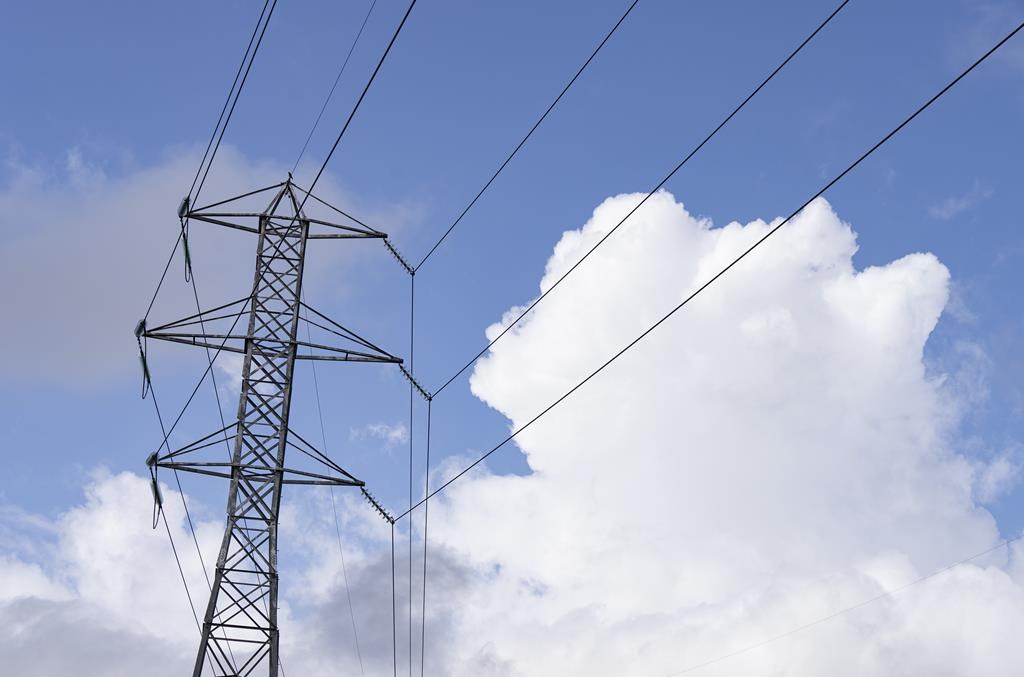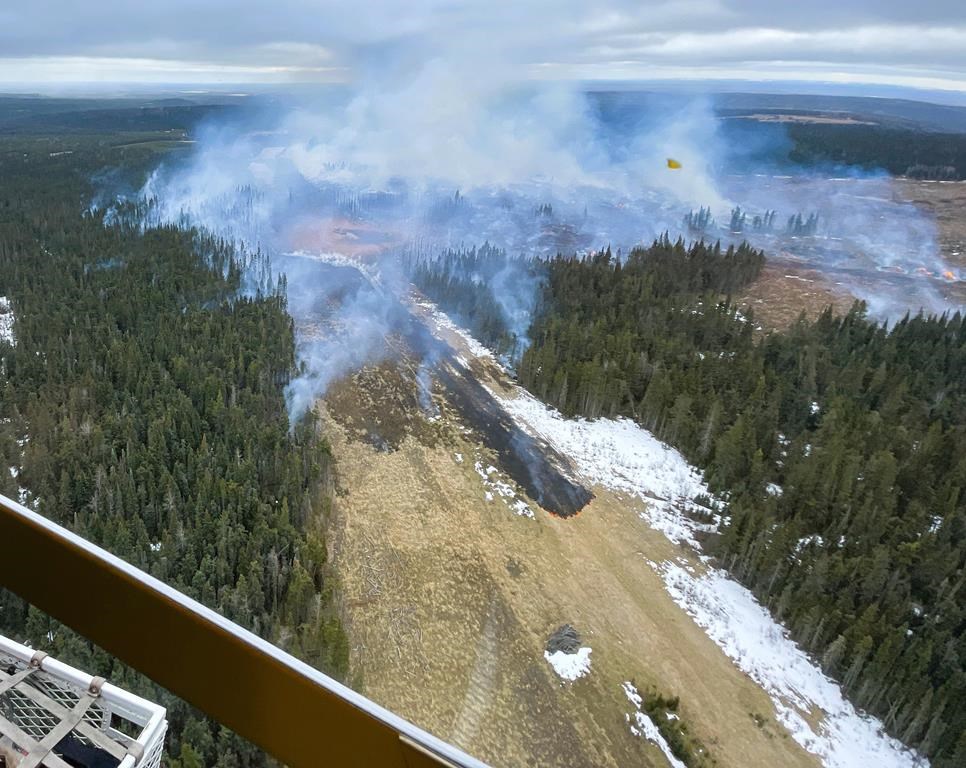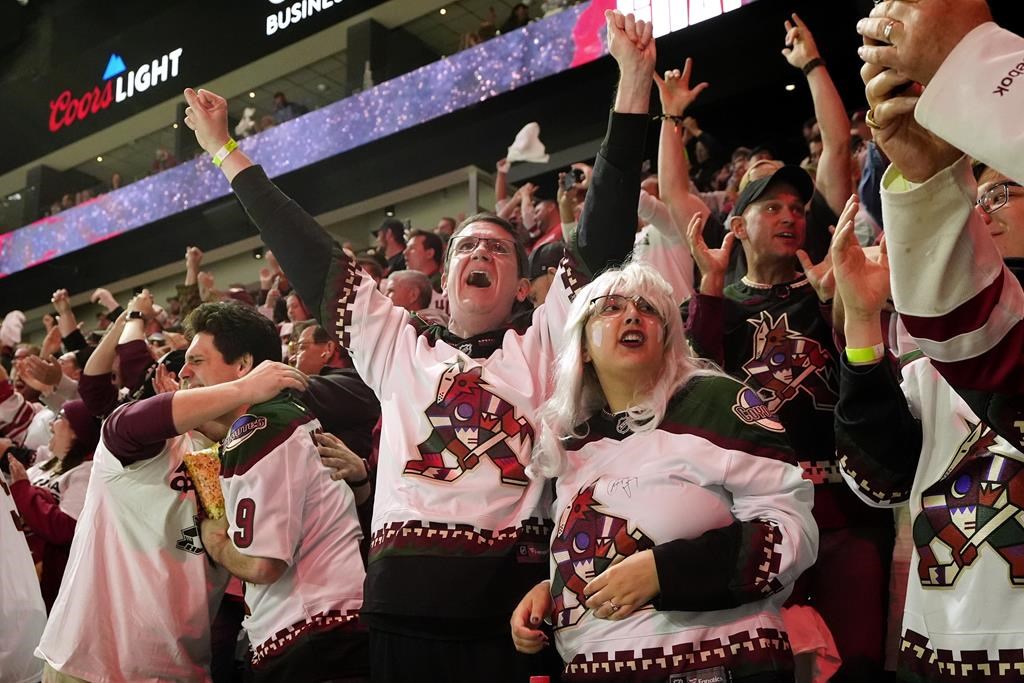The Latest: Tusk: Politicians shouldn’t decide on insults
Posted Apr 23, 2016 7:27 am.
Last Updated Apr 23, 2016 2:40 pm.
This article is more than 5 years old.
GAZIANTEP, Turkey – The Latest on Europe’s migration crisis (all times local):
10:50 p.m.
European Union Council President Donald Tusk says politicians should not decide on the line between criticism and defamation, saying it could spell the end of freedom of expression.
Tusk made the comments Saturday amid criticism that European leaders are overlooking freedom of speech restrictions in Turkey in order not to jeopardize the EU’s migrant deal with the country.
There are nearly 2,000 legal cases open in Turkey against individuals accused of insulting President Recep Tayyip Erdogan. And Chancellor Angela Merkel has come under criticism for her decision to grant Turkey’s request to let German prosecutors and courts decide whether a German comedian has insulted Erdogan.
As a former Polish politician, Tusk said he himself had developed “a thick skin.”
Tusk said: “The line between criticism, insult and defamation is very thin… The moment politicians decide which is which can mean the end of the freedom of expression.”
___
9:55 p.m.
European Union Council President Donald Tusk says the 28-member bloc will spend 1 billion euros ($1.1 billion) this summer on projects to improve the lives of Syrian refugees.
Tusk on Saturday also praised Turkey as the “best example” on how refugees should be treated.
Tusk was speaking in Turkey at a joint news conference with German Chancellor Angela Merkel, EU Commission Vice-President Frans Timmermans and Turkish Prime Minister Ahmet Davutoglu.
Earlier Saturday they visited a refugee camp and an EU-funded centre for Syrian refugee children to promote a Turkey-EU deal on stemming the flow of refugees.
Human rights groups have criticized the trip to what they call a “sanitized” refugee camp. They say EU officials should look further at the tens of thousands of Syrian refugees who have now been blocked from entering Turkey.
Turkey, home to 2.7 million Syrians, is host to the largest number of refugees in the world.
___
9:30 p.m.
Turkey’s Prime Minister Ahmet Davutoglu says the number of irregular crossings by migrants to Greece has dropped considerably, which he says shows that the Turkish-EU migrant deal is working.
Davutoglu said Saturday that since the deal came into effect in March, around 130 crossings have been recorded per day. On some days, no refugees at all cross over to the Greek islands, he said.
Davutoglu was speaking in the city of Gaziantep, near Turkey’s border with Syria, at a joint news conference with visiting German Chancellor Angela Merkel, EU Council President Donald Tusk and EU Commission Vice-President Frans Timmermans.
The Turkish leader said the EU is launching initial projects worth 187 million euro ($211 million) aimed at improving the conditions of refugees in Turkey.
The projects are being funded by the 6 billion euros the EU pledged to Turkey over the next four years as part of the migrant deal. In return, the bloc can deport migrants who don’t qualify for asylum in Greece back to Turkey.
___
8:10 p.m.
German Chancellor Angela Merkel and top European Union officials have inaugurated a child support centre in Turkey for Syrian refugees funded by the 28-member bloc.
Merkel, EU Council President Donald Tusk and EU Commission Vice-President Frans Timmermans on Saturday cut a red ribbon to open the centre which is supported by the U.N. children’s agency. They were joined by Turkish Prime Minister Ahmet Davutoglu and his wife.
Merkel chatted with a group of a children standing in front of paintings made at the centre in the city of Gaziantep, near the border with Syria, gave some of them coloring pencils and listened to a band playing instruments.
She shook hands with the young musicians and thanked them in Arabic.
The delegation is visiting the area near the Syrian border in a bid to promote a deal reached with Turkey on the return of migrants who don’t qualify for asylum in Greece.
___
6:20 p.m.
Four refugee children in traditional Syrian dress were greeting German Chancellor Angela Merkel and top EU officials with flowers as they entered a refugee camp near Turkey’s border with Syria.
The EU leaders are visiting the government-run camp that is home to some 5,000 Syrian refugees in the town of Nizip on Saturday as part of a trip aimed at promoting a migrant deal with Turkey.
Merkel, EU Council President Donald Tusk, EU Commission Vice-President Frans Timmermans and Turkish Prime Minister Ahmet Davutoglu, are also scheduled to symbolically inaugurate an EU-funded child support centre where Syrian children can play and are given psychological support.
The leaders posed for photos with the children and met with the camp’s elected leaders before walking into the site where the refugees are housed in container homes.
A large banner mounted near the fence of the camp read in English and in Turkish: “Welcome to the world’s largest refugee hosting country.”
Turkey is home to an estimated 2.7 million Syrian refugees.
___
5:20 p.m.
German Chancellor Angela Merkel and top European Union officials have arrived near Turkey’s border with Syria in a bid to bolster a troubled migration deal with Turkey as they face increasing pressure to reassess the agreement.
Turkish Prime Minister Ahmet Davutoglu greeted Merkel, EU Council President Donald Tusk and EU Commission Vice-President Frans Timmermans at the airport in the city of Gaziantep on Saturday.
Security was high and the delegation was seen leaving the tarmac on a bus with two sharp shooters standing on the roof.
The delegation is scheduled to visit a government-run refugee camp as well as an EU-funded child centre where Syrian children can play and are given psychological support.
Human rights groups have criticized the trip to what they call a “sanitized” refugee camp. They say EU officials should look further at the tens of thousands of Syrian refugees they say have now been blocked from entering Turkey.
___
4:50 p.m.
Barack Obama says a recent deal between the European Union and Turkey takes a step toward fairer sharing of the job of housing refugees.
But the U.S. president was also stressing the need to uphold human rights.
Many have questioned the March 20 deal, which allows the deportation back to Turkey of migrants who don’t qualify for asylum in Greece. German Chancellor Angela Merkel championed the accord.
In comments to German daily Bild published Saturday, Obama praised Merkel’s “political and moral leadership” in acting on an obligation to help people fleeing horrific conditions.
He said that the EU-Turkey agreement “is a step toward a more equitable way of sharing this responsibility.” Obama added: “As the agreement is implemented, it will be essential that migrants are treated properly and that human rights are upheld.”
___
4:25 p.m.
More than 100 people have taken advantage of an unusually low tide to wade around a border fence that juts out into to the Mediterranean Sea to enter Spain’s North African enclave of Ceuta.
The Red Cross says it attended those who made it into Ceuta and that six were taken to hospital to treat cuts and bruises.
Spanish police say they intercepted 119 migrants who had managed to walk around the border fence on Saturday.
Television footage transmitted on state broadcaster TVE’s news bulletin showed police intercepting the migrants as they approached Ceuta’s beach.
Thousands of migrants try to reach Spain each year either by attempting to enter the country’s African enclaves of Melilla and Ceuta or by making perilous sea crossings to the mainland.
___
10:45 a.m.
A human rights group says German Chancellor Angela Merkel and top European Union officials should rethink the EU’s refugee deal with Turkey, as they travel to the Syrian border to promote the troubled agreement.
Saturday’s trip to the Turkish border city of Gaziantep, including a refugee camp, comes amid questions over the legality of the March 20 EU-Turkey deal to deport migrants who do not qualify for asylum in Greece back to Turkey.
Human Right Watch acting director Judith Sunderland says instead of touring a “sanitized” refugee camp, the EU leaders should focus on the tens of thousands of Syrians blocked at the border. She also urged them to visit a detention centre for migrants “abusively deported from Greece.”
Sunderland says “that should make them rethink the flawed EU-Turkey deal.”










